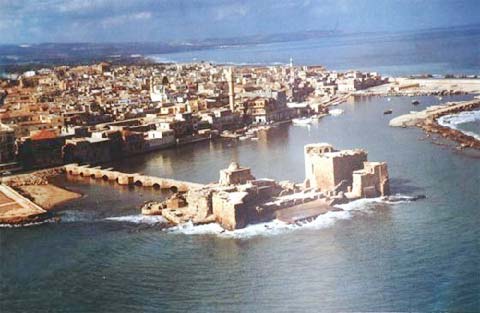It's no secret that God's "inerrant" word is riddled with errors. One can google "Bible contradictions" and come up with with pages and pages of results outlining hundreds if not thousands of errors and contradictions. Whole books on the subject are available on Amazon. Ken Ham wrote a two-volume rebuttal to the most common ones and his treatise doesn't even scratch the surface. I looked at one site and thought I saw 5000. Turns out it was 50,000. It's true that most are of a minor nature, but quite a few--perhaps 500 by my reckoning are egregious enough to be considered serious enough to question the Bible's veracity.
I recently had a short discussion with a member in here about Leviticus 16:34
34 “And this shall be a statute forever for you: Atonement is to be made once a year for all the sins of the Israelites.”
I questioned, "Why did God say the animal sacrifice is to last forever when He knew He'd be sending His son Jesus in 1200 years or so to replace. I would have suspected God would have said, "This statute is only temporary until I send a more perfect sacrifice in the form of my divine son." The truth is IMHO when the scribes wrote out this passage they had absolutely no idea a civilization called Romans would conquer them and destroy Jerusalem and Herod's Temple in 70 CE, therefore they were not in communication with Yahweh when they wrote this ordinance any more than I am in communication with the man in the moon. IOW, this whole atonement thing is a result of a custom that likely evolved over many centuries rather than being handed down by Yahweh all at once.
These errors are why the discipline, apologetics was invented in the first place--to counter with subterfuge or any other means at their disposal to try to make right what was clearly wrong. I can give a few examples of this suberfuge:
“Your house and your kingdom will endure forever before me; your throne will be established forever”
Obviously David's throne and kingdom didn't last forever. It ended when the Babylonians marched into Israel. Clever apologists say however that David's throne didn't really end because one day Jesus (who has been set up to be David's offspring via Matthew's and Luke's completely different genealogies for Jesus) will return to earth to claim the throne and rule from it. How this negates the tens of thousands years Israel is and will be without David's house and kingdom until then is a complete mystery to me.
Another is Ezekiel's prophecy that Tyre would be completely destroyed and never rebuilt. Tyre still exists today. You can visit it (when the pandemic is over). Clever apologists say, however that Ezekiel was speaking of the city's original site. The site where Tyre sits today is a different site. In actuality Tyre consisted of two cities, a coastal town and an adjacent island town off the coast. Nebuchadnezzar did indeed destroy the coastal town but he wasn't able to anything to the island. Later Alexander the Great built a bridge to reach the island but only managed to destroy half of it. So the prophecy failed in two ways.: it wasn't completely destroyed and, contrary to what God says,
"
You will never be rebuilt, for I the LORD have spoken, declares the Sovereign LORD" --Ezekiel 26:14
Tyre thrives today completely rebuilt. For those who doubt here is a pic of it.
Yahweh was wrong obviously.
Anyway, here is one of the more than 500 most egregious mistakes that IMHO cannot be reconciled even by the most stalwart apologists:
For I the Lord thy God am a jealous God, visiting the iniquity of the fathers upon the children unto the third and fourth generation. —Exodus 20:5
The child will not share the guilt of the parent ---Ezekiel 18:20
For I am the Lord; I change not. —Malachi 3:6
Really, God? You changed from commanding punishment up to the 4th generation for the father's sin, but 600 years later you now say no punishment will be visited on the son. I wonder how apologists square those two verses without contradicting Malachi 3:6.
This post is already too long. I will introduce other egregious errors as the thread lengthens, providing apologists are brave enough to address the things I said in this OP.



